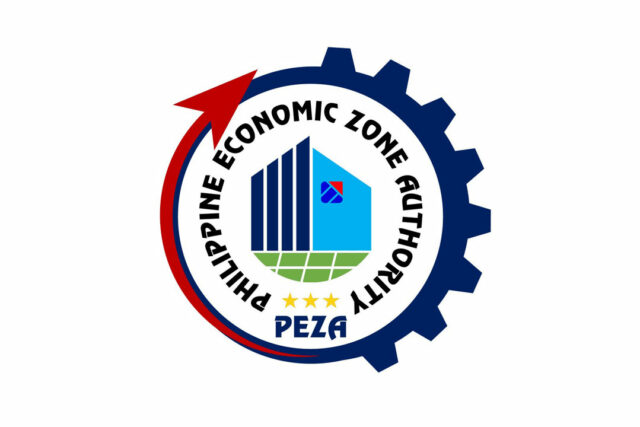THE PHILIPPINE Health Insurance Corp. (PhilHealth) has enough reserves and a surplus to improve benefits next year even without the government’s subsidies, Finance Secretary Ralph. G. Recto said.
“PhilHealth has adequate resources to meet their obligations and even improve benefit packages for 2025,” Mr. Recto, who is also a PhilHealth board member, told reporters on Tuesday.
“They have adequate reserves, and they have a huge surplus which they can use for 2025.”
Lawmakers decided to cut PhilHealth’s supposed P74-billion state subsidy under the proposed 2025 national budget, citing its billions of unused funds.
According to PhilHealth’s financial statement, the state insurer’s reserve fund as of end-June was at P280.57 billion. However, this was down by 16.54% from P336.16 billion in the first half of last year.
Mr. Recto noted the reserve fund was enough to cover the benefits of its members.
“My understanding is, there was a board meeting about a few days ago and they increased the benefit package by 50%. So, the operating budget of PhilHealth next year is roughly P280 billion,” he said.
However, the Finance Secretary said he would like to “improve the benefit packages and reduce out of pocket expenses.”
PhilHealth Chief Executive Officer Emmanuel R. Ledesma said PhilHealth is “financially robust” to support its operations and finance the healthcare costs of Filipinos despite the move by Congress to deny it state subsidy for next year.
Mr. Ledesma told lawmakers on Tuesday the state health insurer has a surplus fund amounting to P150 billion, fund reserves totaling P280 billion, and investment resources of P490 billion.
“PhilHealth is still a very healthy corporation at the moment,” he told lawmakers during a House of Representatives hearing.
“These figures clearly demonstrate that PhilHealth is financially robust, well-positioned to sustain operations and fully capable of addressing the healthcare needs of our 115 million members,” he added.
In a separate statement on Tuesday, the state insurer also said benefits will improve and continue to be paid. It would do better to give the government reason to give it subsidies to use for long-term improvements, it added.
‘DIRECT ASSAULT’
A coalition of labor groups, however, decried the proposed zero-budget subsidy, calling it a “direct assault on social justice and the Constitution.”
The NAGKAISA Labor Coalition, the country’s largest alliance of labor groups, urged President Ferdinand R. Marcos, Jr. to veto the budget, restore the PhilHealth subsidy, and realign government spending to prioritize public welfare over what it described as excessive allocations for political and infrastructure projects.
“The zero subsidy is not just bad policy — it’s negative social justice,” said NAGKAISA Chair Jose Sonny G. Matula in a statement.
PhilHealth’s delayed payments have already forced hospitals to scale back services and left healthcare workers without compensation, NAGKAISA said. Without a subsidy, these issues could worsen, leaving patients and institutions struggling to stay afloat.
Mr. Matula argued that Mr. Marcos had been misled by advisers and questioned the accuracy of the cited figures.
“PhilHealth’s share of hospital expenses is already insufficient. Without a subsidy, families will have no choice but to pawn their land, homes, and even basic household items just to afford treatment,” Mr. Matula added in mixed English and Filipino.
Should the President sign the 2025 budget, the group said it is preparing to seek redress before the Supreme Court for violating the constitutional mandate to prioritize health and education.
The group urged Mr. Marcos to veto the 2025 national budget and reinstate the PhilHealth subsidy, but the President on Monday defended the decision to remove government subsidy for the state health insurer citing its reserves.
PhilHealth “has a P500-billion reserve and the cost to provide their services in 1 year is less than P100 billion…They have sufficient funds to carry on,” Mr. Marcos told reporters at the presidential palace.
Critics argue that PhilHealth is already balance sheet insolvent, with assets lower than liabilities, and that removing government subsidies could exacerbate its financial instability.
Despite these concerns, Mr. Marcos maintained that PhilHealth has sufficient funds to continue its services and has been efficient in providing coverage, including expanded services for cancer patients.
The bicam has also faced criticism over moves to cut the Department of Education’s (DepEd) budget by P10 billion, which Senate President Jose Francis “Chiz” G. Escudero said could be addressed through DepEd’s unspent funds.
“The President can augment any item in the budget from savings or unspent items in the budget,” he said in a text message to reporters.
“There are lots of resources to augment. DepEd and its secretary should know because the submissions for the budget deliberations on their own dismal fund utilization came from them,” he added.
Education Secretary Juan Edgardo “Sonny” M. Angara earlier hit the budget cut, saying in an X post on Monday, “It seems the congressman wants us to sink even lower.”
In particular, DepEd can utilize the unspent P10.034 billion from its P13.068-billion in the 2022 General Appropriations Act (GAA) for its computerization program, Mr. Escudero said.
That fund would revert to the National Treasury by the end of the year, he noted.
DepEd can also tap the P10.2 billion that it has not obligated nor spent from the P20.4 billion that Congress allocated in the 2023 GAA for the similar program, he added.
The agency also has unspent P15.9 billion under the 2024 budget for its computerization program.
In a statement shared to reporters via Viber, Finance Undersecretary Annalyn M. Sevilla said of the P32 billion budget for the DepEd Computerization Program from 2022 to 2024, P28.5 billion has been obligated, as of Nov. 30, 2024.
Meanwhile, a private sector group advocating learning reforms has called on lawmakers to fix the cuts faced by the education sector under the proposed 2025 national budget, citing the Marcos administration’s push for human capital development.
In a statement, the Philippine Business for Education (PBEd) flagged that Manila has been allocating only 3.6% of its gross domestic product to the learning sector since 2022, a trajectory that is far below the global standard for education.
This is “far short of UNESCO’s (United Nations Educational, Scientific and Cultural Organization) recommendation of 4-6%,” PBEd said.
It said the Congress-approved budget for 2025 will provide the DepEd and its attached agencies a nominal increase of just P19.42 billion compared to the agency’s P758.6-billion funding under the 2024 national budget.
“A closer look shows that this increase only translates to an approximate of P1,600 spent for every student,” PBEd noted.
“We still have a long way to go in ramping up our efforts and ensuring that our students and our teachers are provided with the essential resources needed to succeed,” it said. “Investment in education must be a priority.”
PBEd cited the President’s “direction on improving our human capital.”
The Marcos administration’s eight-point socio-economic agenda under the Philippine Development Plan for 2023 to 2028 includes the target to “equip Filipinos with skills to participate fully in an innovative and globally competitive economy.”
Amid issues hounding the proposed 2025 national budget, Mr. Marcos on Monday said he would push for the restoration of DepEd’s budget cuts, particularly the P10-billion proposed funding for its national computerization program for 2025.
Speaking to reporters at the presidential palace, the Philippine leader said the cut does not align with his government’s thrust in science, technology, engineering, and mathematics (STEM) development.
“With this pronouncement on restoring the education sector’s budget, we remain hopeful that his leadership will inspire the necessary prioritization of education within the government,” PBEd said. — Aaron Michael C. Sy, Kenneth Christiane L. Basilio, Chloe Mari A. Hufana, and Kyle Aristophere T. Atienza












